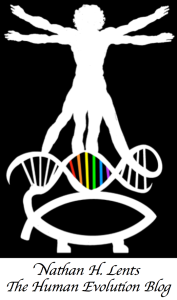“From the mouth of babes…” “Children say the darnedest things…” or my personal favorite, “Only drunks and children tell the truth.” These are all sayings that invoke the folk wisdom that children are naturally truthful and that we only learn to lie much later. This tickles our romantic notions that children are pure and innocent and it is only society that corrupts them as they learn to make their way in a dishonest world.

But that’s just not the case. It turns out that children start to tell little lies almost as soon as they can communicate. Some might even consider the “fake cries” that infants do as dishonest, an attempt to get what they want through exaggeration. This would mean that our first lies come even before our first words. This hilarious Cracked article discusses some of the antisocial behaviors that babies engage in, but exaggerates the scientific interpretation of otherwise solid social scientific studies. My Psychology Today colleague Romeo Vitelli does a better job of summarizing what we know about children and lying.
In a new episode of the This World of Humans podcast, I interview Professor Angela Crossman about the topic of children and lying. Dr. Crossman is the chair of psychology at John Jay College and a developmental psychologist with two decades of experience studying children and their lying behaviors. Although she has a particular focus on children as witnesses in legal proceedings, Dr. Crossman also studies lying in children per se and how it connects to other abilities and behaviors in children and discipline styles from their parents.

Dr. Crossman reminds us that one of the key cognitive elements to lying is something called “theory of mind,” which is our awareness that other people also have minds, thoughts, beliefs, etc. Theory of mind seems to come up everywhere in my life these days. I’m currently writing an article on the evolution of sarcasm… the key to sarcasm is… theory of mind. The last chapter of my recent book is about animal consciousness… the key to exploring animal minds is…. theory of mind. ToM, as it’s often abbreviated by specialists, is a central cognitive ability underneath so much of our high-order inner experiences.
Children need ToM in order to purposely tell a lie because for them to think they can fool you, they have to first understand that you have a mind that can be fooled. Of course, the first intentional lies that children tell are crude and easily thwarted. (My daughter once answered, “no,” when I asked her if she wrote on the wall, but when I asked why she wrote on the wall with green marker, she corrected me that she used a purple marker.) But like with everything else they do, children’s lies get more sophisticated as their brains gain complexity and power.

In a new study, Dr. Crossman and her colleagues probe how lying is connected to other problem behaviors in children. Is lying an anti-social behavior akin to hitting, teasing, or bullying? Or is it in a category on its own related to a child’s desire to please others and avoid punshihment? In addition, in the article, Crossman and colleagues probe for a correlation between lie-telling and different disciplinary styles in the parents, such as authoritarian, authoritative, and permissive. The results are not always what we might predict.
Listen to the podcast episode for the full story! (Episode #07)
And science educators, remember that each episode of TWOH includes teaching guides for incorporating the episode and its featured article into your classrooms! They are appropriate for high school and college level science courses.
And if you like the podcast, don’t forget to subscribe and tell all your friends!
Podcast website: https://goo.gl/VnuzKh
SoundCloud: https://goo.gl/JjX2NS
iTunes: https://goo.gl/53KCf9
GooglePlay: https://goo.gl/s2afxK
-NHL
